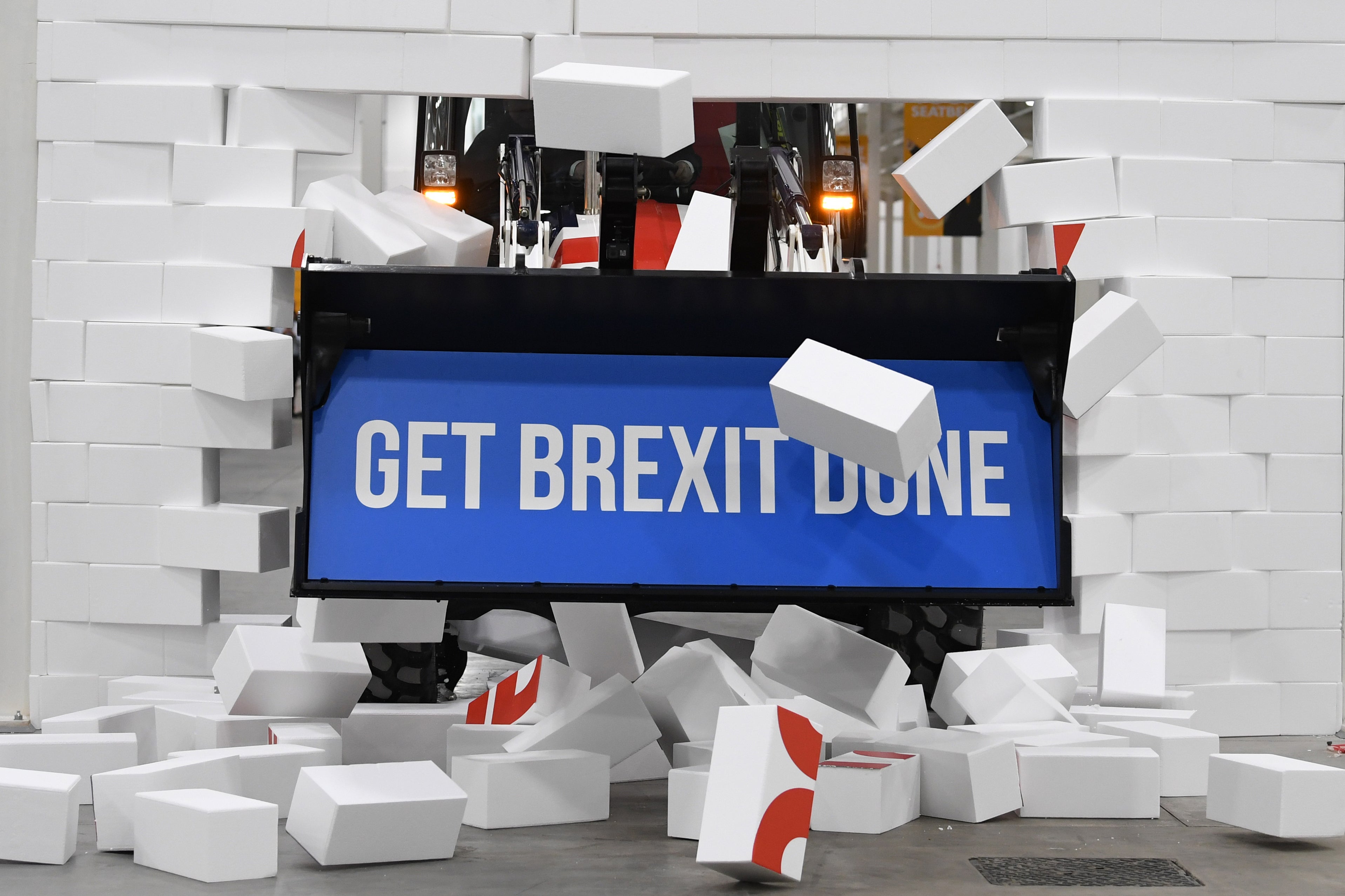The need for a Freedoms Bill shows Brexit didn’t get ‘done’ after all
Rows with Brussels will be non-stop when the post-Brexit bonfire of regulations becomes law


Maybe the weather isn’t ideal for street parties and dancing around the maypole, and nor is the political climate altogether propitious, but the prime minster at any rate is keen to celebrate the second birthday of Brexit.
Boris Johnson must believe that he did “get Brexit done”, despite the queues outside Dover, the unstable Northern Ireland protocol, and permanent squabbling with France about fishing quotas and refugees.
The freshly announced “Brexit Freedoms Bill” is a case in point. To his critics, it’s Johnson’s way of distracting from the Partygate scandal, chucking some “red meat” to his restive backbenchers, and handily stoking up old arguments about the EU.
However, the very fact that Britain still needs such a piece of legislation to “unleash” the benefits of Brexit does slightly undermine the status of his achievement, for it rather adds to the evidence that Brexit didn’t get “done” on 31 January 2020 after all.
An unusually tendentious government (as opposed to Conservative Party) press release claims: “Having regained our independence, we can now ensure that our regulations are tailor-made to the UK’s own needs. However, under current rules, reforming and repealing this pipeline of outdated EU law would take several years because of the need for primary legislation for many changes, even if minor and technical.
“The new legislation will ensure that changes can be made more easily, so that the UK can capitalise on Brexit freedoms more quickly.
“The Bill is also expected to end the special status that EU law still enjoys in our legal framework. Despite our exit from the bloc, EU laws made before 1 January 2020 continue to have precedence in our domestic framework. This is simply not compatible with our status as a sovereign, independent country and the government will bring it to an end as quickly as possible.”
It is also an odd announcement because it is entirely content-free. It feels rather as if it was rushed out with zero departmental input, even less than the forthcoming Levelling Up White Paper. Government by slogan, you might say. What will the Brexit Freedoms Bill do for farmers, for example? For manufacturers? For financial services? Brewers? Distillers? Tour operators? Pharmacists? Lawyers? Park wardens?
We simply do not know; nor do we know why the government estimates it represents some £1bn in “red tape” savings. It could be that unnecessary and outdated rules are going to be abolished in expeditious fashion with little demur from the opposition or public. On the other hand, as the nation has learned to its cost, regulations are often there for a reason.
The BSE disaster, for example, could be traced back to a relaxation of mundane and apparently fussy rules on processing animal feedstuffs. The financial crisis of 2008-09 can be attributed at least in part to the fashion for allowing markets, rather than regulators, to police banks. So can the pensions mis-selling scandal. The Grenfell fire had failures of building regulations at its core. Done carelessly, discarding regulations in haste can lead to appalling unintended consequences.
The other problem with ditching EU laws in the name of Brexit “freedoms” is that the EU laws may be the guarantee, as far as Brussels is concerned, that the UK will comply with its obligations under the EU-UK Trade and Cooperation Agreement (TCA) and ensure a “level playing field” in trade in return for non-tariff access to EU markets.
Certainly this is hinted at with the prime minister telling the EU to “abandon the punitive and zero-sum approach”. The problem is that the EU sees no reason why Britain should be able to ignore the “level playing field” agreement freely entered into to “get Brexit done”.
To Brussels, this may look very much like an attempt to unpick and renegotiate Brexit. Ironically, the second anniversary of getting Brexit done is being marked with yet another attempt to undo the Brexit treaties. The “level playing field” provisions apply to competition policy, subsidy control, state-owned enterprises, taxation, labour and social standards, environmental protection and climate change.
Yet the whole point of Brexit, for many, was to deregulate, to bring in lower taxes and generally achieve a more efficient lower-cost and more enterprising economy to make the most of global opportunities. Merely applying a version of the European social model while giving up membership of the Single Market and Customs Union would be the worst of all worlds.
The devolved administrations within the UK have also objected to Westminster acquiring the sole power to alter regulations in policy areas explicitly devolved to Edinburgh, Cardiff and Belfast. This will be another source of acrimony as officials work through the statute book.
Ministers have long chanted that they had no intention of reducing standards in areas such as farmed animal welfare, or workers’ rights, but it will be up to the EU as to how far it will tolerate Britain diverging from the EU’s own rule book under its privileged access to EU markets. If recent history is anything to go by, the rows will be non-stop once the Brexit Freedoms Bill becomes law.
Brexit didn’t get done, then, after all.
Subscribe to Independent Premium to bookmark this article
Want to bookmark your favourite articles and stories to read or reference later? Start your Independent Premium subscription today.






Join our commenting forum
Join thought-provoking conversations, follow other Independent readers and see their replies
Comments